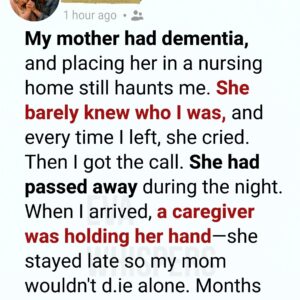Health is one of the most valuable assets we have, yet many people ignore the early warning signs their bodies send.
Detecting symptoms early can mean the difference between quick treatment and a serious medical crisis.
The body often gives subtle — and sometimes dramatic — clues that something is wrong.
By paying attention to these signs, we can take preventive measures, seek medical advice sooner, and potentially avoid life-threatening complications.
In this article, we’ll explore the most important early warning signs that may indicate your health is at risk.
We’ll also discuss why they matter, what conditions they may be connected to, and practical steps you can take to protect yourself.

Why Early Detection Matters
Modern medicine offers advanced treatments, but early detection remains crucial. Identifying issues like heart disease, diabetes, or cancer in their early stages greatly improves recovery chances. Ignoring symptoms such as sudden pain or breathlessness can be dangerous, so learning to recognize warning signs is key.
Common Warning Signs You Shouldn’t Ignore
1. Sudden or Severe Pain
Unexpected chest, head, or abdominal pain can indicate serious conditions like heart attack, stroke, or internal issues. Seek medical attention if pain is intense, persistent, or unusual.
2. Dizziness or Fainting
Frequent loss of balance may signal circulatory or neurological problems. If it happens often, get checked for heart rhythm issues or blood pressure irregularities.
3. Difficulty Breathing
Shortness of breath or wheezing can stem from asthma, heart failure, or allergic reactions. Treat breathing problems as urgent, especially if sudden.
4. Unexplained Fatigue
Constant tiredness may indicate anemia, thyroid disorders, or heart disease. If rest doesn’t help, consult a doctor.
5. Sudden Weight Change
Rapid weight loss or gain without lifestyle changes can point to thyroid, hormonal, or organ-related issues. Track changes closely.
6. Ongoing Digestive Problems
Persistent bloating, pain, or bowel issues might suggest food intolerance or gastrointestinal disease.
7. Skin, Hair, or Nail Changes
New moles, thinning hair, or brittle nails can reflect internal health problems such as hormonal or circulatory issues.
8. Emotional or Cognitive Shifts
Memory loss, mood swings, or brain fog may be linked to stress, hormonal imbalance, or neurological disorders.
Who’s Most at Risk
Older adults, people with chronic illnesses, or those with poor lifestyle habits face higher risks. A family history of major diseases also increases vulnerability—making regular checkups essential.
Protecting Your Health
-
Don’t ignore new or severe symptoms.
-
Schedule regular health screenings.
-
Track diet, exercise, and sleep.
-
Maintain a balanced lifestyle with good nutrition and rest.
Conclusion
Your body communicates constantly—through pain, fatigue, and changes in mood or appearance. Recognizing these early warning signs gives you power over your health. Proactive care and timely response can prevent complications and lead to a longer, healthier life.





